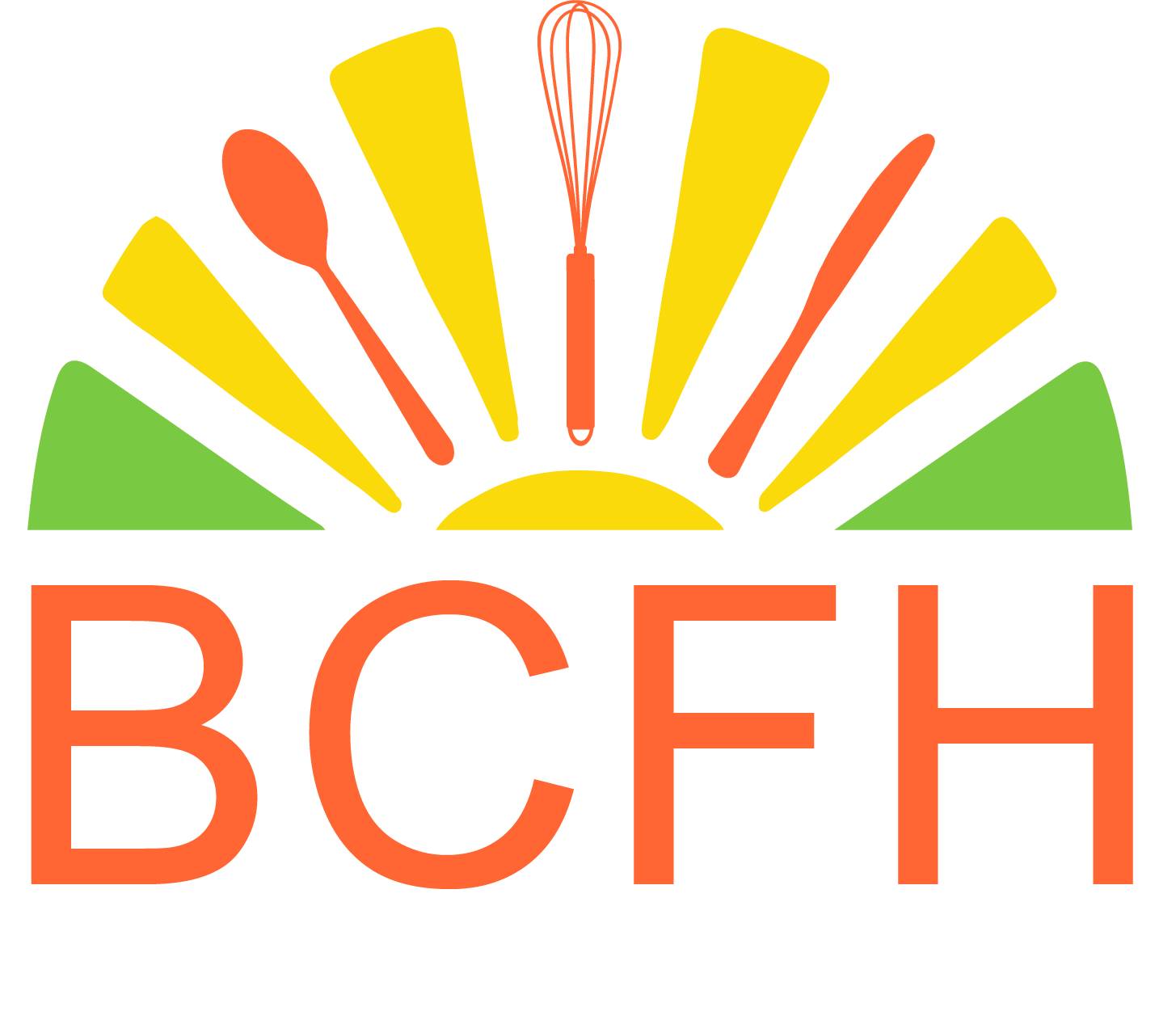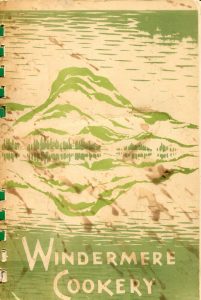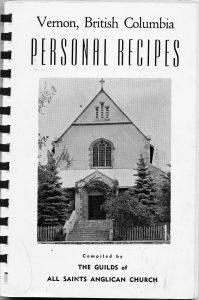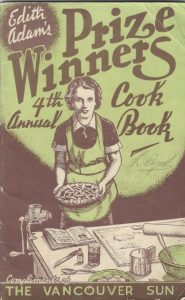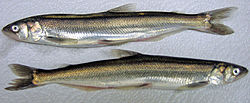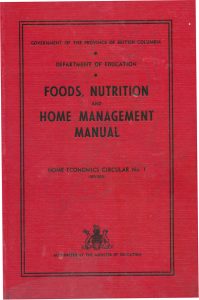Research in food history integrates social, economic, cultural, and geographical influences on food customs, choices and foodways. In this section of the BC Food History Network website, we present a variety of research papers that illuminate the importance of food in history. From time to time new research papers will be posted on this page. Paper submissions are invited.
 Using Cookbooks to Document the Challenges and Solutions of Daily Home Life: Windermere Cookery
Using Cookbooks to Document the Challenges and Solutions of Daily Home Life: Windermere Cookery
By Mary Leah de Zwart
Prepared for Canadian Symposium Issues and Directions in Home Economics / Family Studies / Human Ecology Education, February 22-24, 2019, Vancouver, BC
Mary Leah de Zwart examined Windermere Cookery for her contribution to the Canadian Symposium XV – Issues and Directions in Home Economics. Human Ecology and Family Studies, held at Vancouver, BC Feb. 22-24, 2019.
The cookbook provides a look at the values, issues and beliefs of a 1950s community in British Columbia, as expressed in this small publication, intended to raise money for the Windermere Hospital Ladies Aid.
Game cookery was important; convenience foods were starting to creep in; the Windermere community was on the move.
Using Cookbooks to Document the Challenges and Solutions of Daily Home Life: The Case of Personal Recipes, Vernon BC.
by Linda Peterat, PhD, Professor Emerita Curriculum Studies, UBC-Vancouver.
Linda Peterat researched a community cookbook for her food history research paper, presented at the Canadian Symposium – Issues and Directions in Home Economics, Vancouver, BC, Feb. 22-24, 2019. She based her paper on Personal Recipes: Compiled by the Guilds of All Saints Anglican Church, Vernon (c. 1955). Part of her findings included the observation that the cookbook’s emphasis on easy quick food preparation showed an “underlying tension of women’s role in relation to food…. the recipe emphasis is on simplicity, economy and quick preparation…. While the kitchen is highly valued, we really don’t want to spend much time, energy or money to food production” (n.p.)
 Keeping the “British” in British Columbia: A Case Study of Using a Cookbook for Historical Research
Keeping the “British” in British Columbia: A Case Study of Using a Cookbook for Historical Research
By Mary Gale Smith
BC Food History Network March 31, 2019
S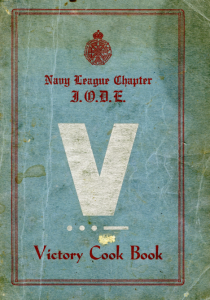 mith M.G. Cookbook Research BCFH
mith M.G. Cookbook Research BCFH
Gale Smith wrote this article as her contribution to cookbook research for the Canadian Symposium XV, Issues and Directions in Home Economics, Family Studies and Human Ecology Education, held at Vancouver, BC, Feb. 22-24, 2019. She analyzed The Victory Cookbook, a BC cookbook produced in 1941. This particular cookbook was available on the Wartime Canada website and was billed as a a “wartime cookbook that revealed “what women on the homefront cooked for their families” (Wartime Canada).
Gale Smith suggests that recipes are critical cultural artifacts in her examination of four Readers’ Choice recipes gleaned from the Vancouver Sun recipe contests. She uses the concepts of “hermean” and “hestian” from Patricia Thompson to illustrate that the political concepts of the hermean lens are not adequate for dealing with economic and social problems such as hunger, homelessness and family fragility because they are issues that arise in the hestian space of our common world, and use of a hestian lens is of paramount importance.
Turkey on the Menu for Thanksgiving Dinner? by Linda Peterat examines Canadian Thanksgiving, long under the shadow of American Thanksgiving and argues that it is a true North American celebration of the harvest.
Selling B. C.’s Fruit: Home Canning Recipes from B.C. Tree Fruits Ltd.
By Mary Leah de Zwart and Linda Peterat
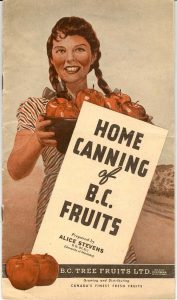 Selling BC’s Fruit by Mary Leah de Zwart and Linda Peterat illuminates the efforts to increase home consumption of BC tree fruits through a series of home-canning recipe books distributed by B.C. Tree Fruits Ltd. of Kelowna. This article was previously published in a Culinary Historians of Ontario newsletter.
Selling BC’s Fruit by Mary Leah de Zwart and Linda Peterat illuminates the efforts to increase home consumption of BC tree fruits through a series of home-canning recipe books distributed by B.C. Tree Fruits Ltd. of Kelowna. This article was previously published in a Culinary Historians of Ontario newsletter.
The Foods, Nutrition and Home Management Manual, better known as “The Red Book”, dominated home economics in British Columbia schools for half a century. It was written by Jessie McLenaghen and a team of home economics teachers in 1926 and revised continuously until 1975 when it was finally replaced. Many a grandmother or great-aunt learned how to cook from the Red Book. Read “Red Book Revealed” by Mary Leah de Zwart in British Columbia History: Journal of the British Columbia Historical Federation, Volume 40 (2), 11-14.
Community Cookbooks: The Stories They Tell
Contributed by Linda Peterat
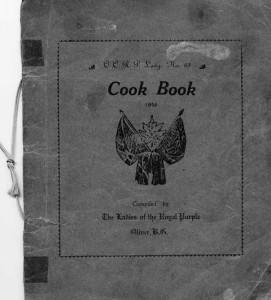 Linda Peterat explores two cookbooks of the 1930s and 1940s, using the following themes: the role of women in fundraising and service, the connections between foodways and ethno-religious identity, the evolution of identity in relation to modernization and acculturation, and food practices as a political statement (Epp, 2013, p. 174).
Linda Peterat explores two cookbooks of the 1930s and 1940s, using the following themes: the role of women in fundraising and service, the connections between foodways and ethno-religious identity, the evolution of identity in relation to modernization and acculturation, and food practices as a political statement (Epp, 2013, p. 174).
